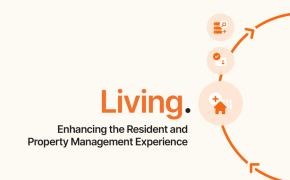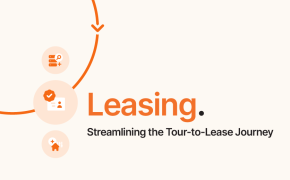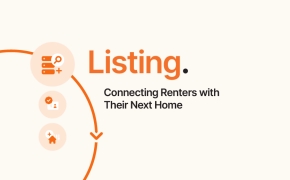Making resolutions at the start of each New Year is a popular tradition. For individuals, resolutions often take the form of personal goal-setting and embody a quest for self-improvement. For businesses, resolutions often take the form of annual business plans with profit and growth objectives. In both cases, the path to success depends on identifying solutions and making a long-term commitment to change. Given ongoing market challenges, the rental housing industry must resolve to consider new approaches to property management. Smart home technology, for example, has the potential to alleviate current fiscal pressures, transition operations to a higher level of efficiency, and create sustained property value. Rently is eager to help property managers achieve these goals, and so we offer you these top 3 reasons to invest in smart home technology in 2024.

Rental property managers and operators should consider how smart home technology can help to resolve immediate, transitional, and long-term challenges.
Specifically, deploying smart home technology immediately increases NOI, gradually centralizes operations for maximum efficiency, and creates a lasting alignment with growing renter preferences for on demand services and modern amenities.
1. Invest in Smart Home Tech to Increase NOI
An immediate benefit of investing in smart home technology is the ability to lower operational costs at a time when inflationary pressures are wreaking havoc on property management budgets.
Economic headwinds push both managers and renters to find ways to save money in every possible way. Smart home technology, especially smart thermostats and smart lighting, provide immediate relief through efficient energy management. On average, smart home devices lower annual utility costs by up to 30%, and offer the potential to positively impact property sustainability scoring, by lowering overall energy usage. Smart home devices also help property managers monitor utility usage in vacant units (saving at least $130/year/unit!). They also provide property managers with timely HVAC performance alerts to avoid costly replacements.
In addition, surveys continue to show that today’s eco-conscious renters increasingly seek to lease properties with smart thermostats. In fact, 70% of renters respond that they would not lease a property without one. As we can see, simply by adding smart thermostats to properties, managers attract more rental prospects. This immediately increases the chance for lease signings! There is also immediate operational cost savings — making an initial smart home investment a quick double win.

Another immediate benefit of investing in smart home technology is the ability to avoid large-scale property damage. A property manager’s number one priority is asset protection. Smart home technology enables preventative maintenance which eliminates unnecessary and costly work projects.
Especially during tight economic times, it’s wise to take preventative steps to avoid extra expenses related to property damage. Smart leak sensors and smart smoke/CO2 alarms often keep small property issues from turning into larger, more costly ones. The average cost of remediating a multi-unit leak is $12,000. Rently property manager surveys report, on average, 4-5 such leaks per year. As such, simply by adding water leak sensors to a property, managers can save up to $60,000 each year and potentially reduce all water damage repair costs by 70-90%.

Significantly, using smart home technology to safeguard a property leads to the extended benefit of lowering annual insurance costs by as much as 10%, with some insurance providers also offering up to a 50% discount on smart home devices. For 2022-23, insurance premiums continued to rise with 30% of policies experiencing a 25% increase. Smart home technology investments proved to be viable financial offsets.
Finally, property managers looking for another quick way to lower operating expenses should consider a one-time installation of individual unit smart locks. Aside from adding convenience and ease, smart locks eliminate the ongoing re-keying expense, which averages $50-$100 per unit turnover and can add up to thousands of dollars each year.
As you can see, the immediate benefits of deploying cost-saving smart home technology are obvious. Reducing utility, insurance and other recurring operating expenses leads to increased NOI and noticeable bottom-line improvements.

2. Invest in Smart Home Tech to Centralize Property Management
Above, we identified several immediate cost savings that result from deploying smart home technology. Another reason to invest in smart home technology is to reduce leasing costs over time by gradually transitioning property management operations to the new “centralization” model.
Centralization is the future property management paradigm. It is efficient, offers time-saving remote management capabilities, aggregates valuable operational data, offers easy portfolio scaling, and addresses workforce shortages. Centralization is the leasing model best suited for today’s challenging economic times. It allows leasing teams to “do more, with less.

Smart home technology supports centralization by empowering leasing teams with the tools required to enable remote property management.
For example, by deploying smart locks, controlled from a smart home technology platform, managers can remotely control property access. This eliminates travel time to properties for tasks that don’t require their immediate attention or expertise. They are able to remotely initiate renter tours, facilitate unit turnovers, and provide property access to vendors and maintenance technicians. Managers still interact with each property visitor before and after their visit, however, there is no need to be onsite for tasks to be successfully completed.
Understandably, property managers are often concerned that shifting traditional onsite tasks to remote property management could jeopardize the quality of their work, and even threaten their jobs. However, remote property management does not necessarily affect performance or eliminate tasks. It simply uses new, more efficient tools to accomplish the same tasks.
For example, renter surveys show the growing popularity of self-guided tours, with a 63% increase in renters expressing a desire to tour a property autonomously. Remotely controlling property access eliminates the need for managers to be onsite, while touring activity is successfully accommodated.

“Whereas a leasing agent might find it hard to find the time to show properties every day, our technology is essentially allowing somebody to tour any day without being limited by the agent’s schedule. It’s a much more cost-efficient way to show properties during tight economies. When you don’t have the headcount to facilitate traditional agent showings, self-showing is a wonderful tool that can keep your leasing goals on pace.” – Merrick Lackner, Rently CEO.
In general, using smart home technology to effectively automate leasing functions that do not require an onsite presence reduces the operational pressures resulting from workforce shortages. Onsite teams have technology tools as back-up support.
Another way that smart home technology supports centralization is by providing property managers with actionable data for better operational decision-making.
For example, Rently’s smart home manager portal allows complete control of all smart home devices, across all units and locations. From a single dashboard, managers can see where their smart home technology is deployed and the status of those devices. In addition, managers can track self-touring appointment scheduling, arrivals, and completions. They also see metrics regarding the number of self-tours that resulted in lease signings. Rently also stores renter surveys and integrates with leading CRM softwares to streamline lead management and prospect engagement.

A robust smart home technology platform provides property managers with a full spectrum view of all leasing operations, empowering them to make well-informed, data-driven decisions and adjustments, as needed.
The real-time operational data provided by smart home technology is also a necessary resource for emerging AI-powered property automations. Data-driven AI enables the personalization of the renter experience, lead engagement chatbots, and preventative property maintenance.
Finally, smart home data dashboards help property managers scale property portfolios, up or down, as needed. Whether managing a single property with multiple units, or multiple properties spread across a nationwide portfolio, operators can identify operational deficiencies or competitive advantages.

3. Invest in Smart Home Tech to Satisfy Renter Preferences
The third — and perhaps most important — reason to invest in smart home tech this year is because renters continue to communicate their strong interest in digital amenities.
Whether it be for convenience or security, today’s renters have embraced a digital lifestyle that extends to their property searches and living spaces. Zillow’s 2024 Consumer Housing Trends Report indicates that renters increasingly prefer to manage all of their leasing transactions online or using a mobile device. Since 2021, there has been a 9% increase in renters searching for properties online, and a 12% increase in renters who use a mobile device app. Zillow’s survey also shows that 67% of renters want to apply to a property online, 57% want to sign their lease online, and 69% want to pay their rent online.
Perhaps the most interesting trend revealed in Zillow’s survey is that renters are less inclined to schedule in-person tours. Property managers would be well served to offer alternative tour experiences, such as self-guided tours. To further support this need, recent reports show that 20% of renters find it challenging to fit touring into their schedules. Similarly, Rently’s market data shows that 40% of renters prefer to tour outside of regular business hours.
Another trend, which might actually be considered a “retro” trend, is that, in a post-pandemic environment, renters are again expressing interest in shared amenities, such as gyms, laundry areas, and conference rooms. Smart home technology, such as common area smart access devices, make these shared spaces accessible and secure for renters, while providing property managers with oversight and control.
All of the trends described above require deploying some form of smart home technology to provide the desired automations.
Property managers can easily satisfy the renter preferences of today and tomorrow by investing in a comprehensive smart home solution that allows for online property searches, automated tour scheduling, automated tenant screening, and a resident experience that includes the cost and energy-saving smart home devices mentioned above.
“Smart home technology, whether it be keyless entry locks, smart thermostats or leak sensors, these are all things that, five or six years ago, were still pretty new to the marketplace,” said Andre Sanchez, COO of Rently. “Now, however, renters actually expect to see this technology in their living spaces.”
Thanks to this increasing consumer demand, it’s not surprising that Statista forecasts steady growth in smart home technology usage. The U.S. smart home market is projected to reach $38.8bn in 2024, and continue to grow to $55bn by 2028. This is based on a 9% annual growth rate. Furthermore, household penetration rate is expected to increase from 52.4% in 2024, to 75.1% by 2028.
These statistics reflect an increased recognition by property owners of the long-term value of deploying smart home technology. For instance, surveys show renters are willing to pay $37.65 more in rental rates for smart amenities. In addition, smart home technology has the potential to achieve a 3-5% increase in property value. Overall, smart home technology nets an average 30% ROI —– making it one of the best ways to achieve leasing success!
It’s obvious that smart home technology is shaping the rental housing market of the future. Investors and property managers would be well advised to differentiate their rentals now to capture the investment and renter retention benefits of this long-term trend.

Conclusion
This new year offers rental property managers the opportunity to embrace new ways of thinking and utilize new technologies to overcome economic concerns and operational challenges.
By resolving to upgrade properties with smart home technology, managers can make a positive impact on their leasing operations and bottom line, while attracting and retaining tech-savvy renters.
Rently is ready to partner with you to make 2024 the year that smart home technology elevates rental housing to new heights and ushers in the next generation of smart property management.




